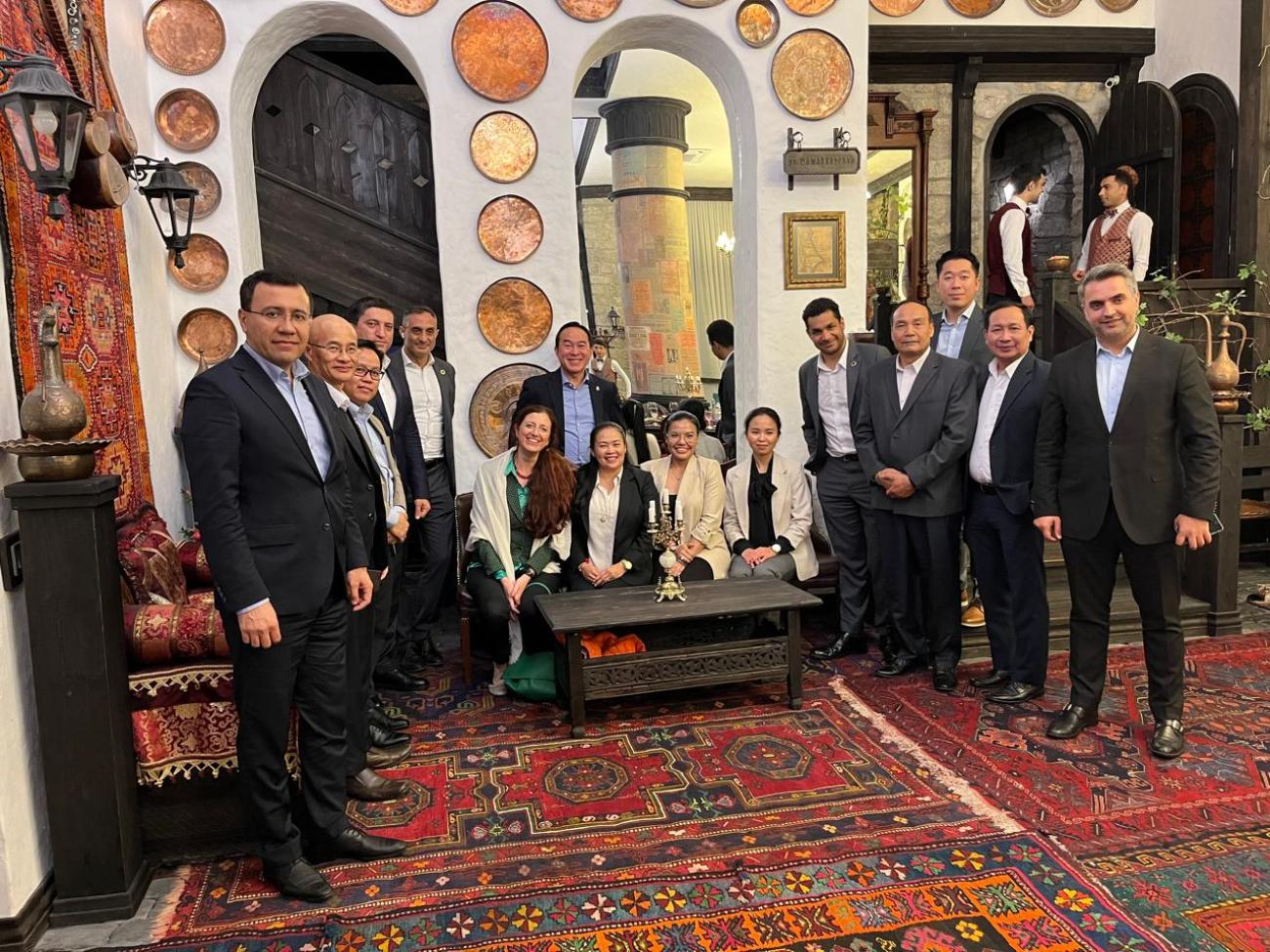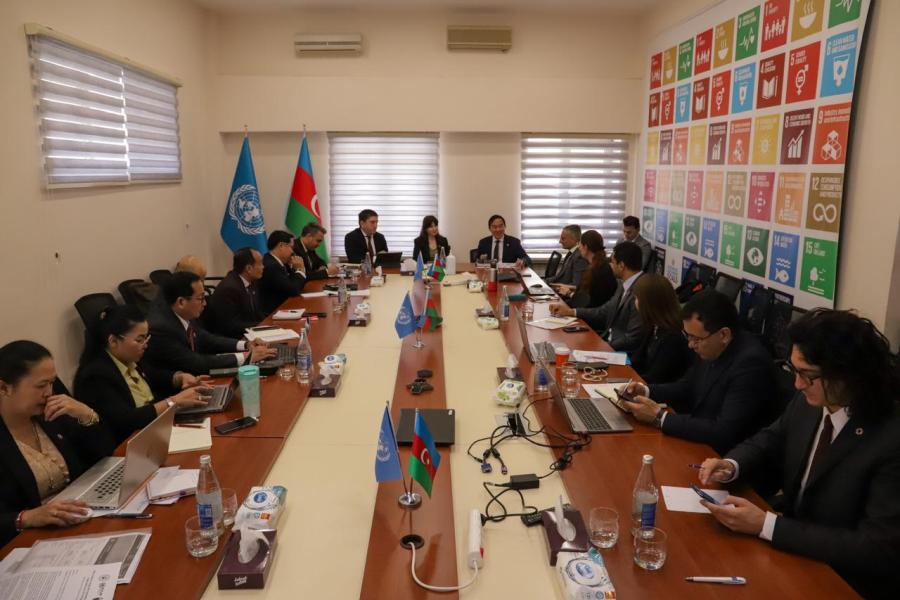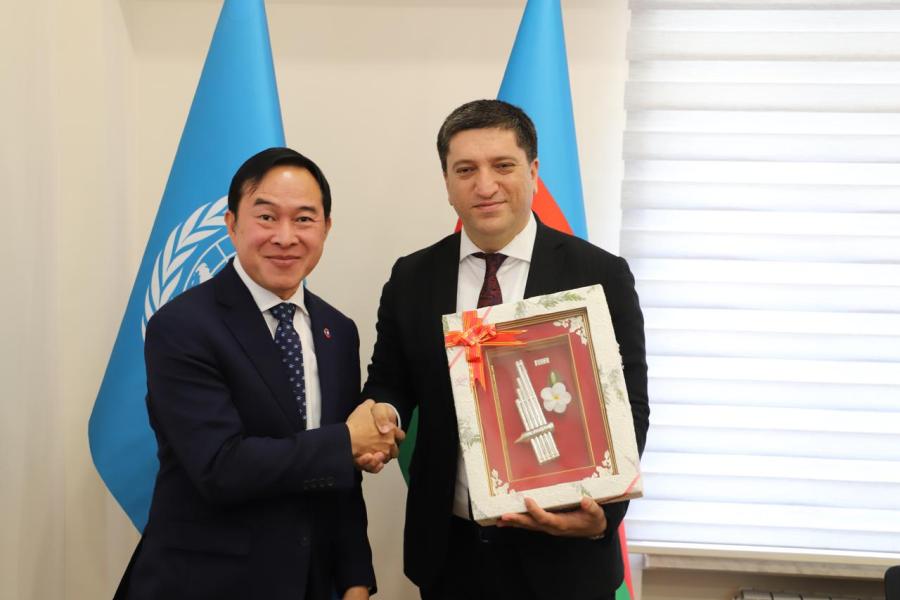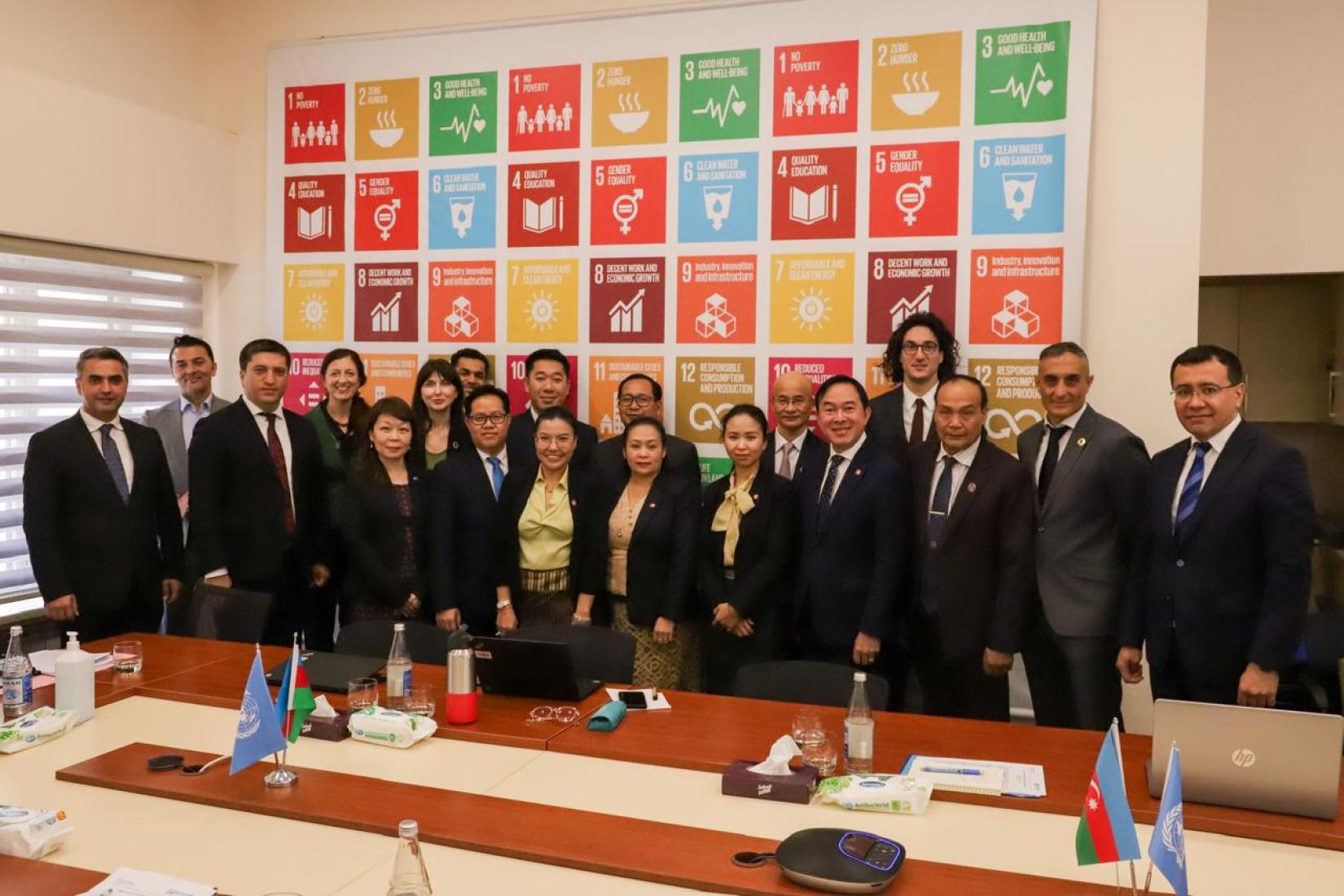Azerbaijan and Lao PDR: ‘Twins’ in pursuit of the SDGs

With the global pursuit of the SDGs so far off track, we are all constantly on the lookout for practical inspiration on how progress could be accelerated.
This is true for the UN development system that is working to support progress towards the 2030 Agenda, and it is true for the Member States that designed and signed up to it. And when we are falling so far behind, with Asia-Pacific collectively heading for a 32-year delay according to the latest estimates from ESCAP, that search for ideas needs to go beyond the most obvious places.
Amongst the many efforts to analyze sustainable development progress, bottlenecks, and their solutions, perhaps the most extensive at the country level are the Voluntary National Reviews that countries can opt to develop and present to the High-Level Political Forum annually. These extensive, and collective, exercises speak to the universality of the SDGs and take a deep look at how close we are to reaching our 2030 targets, and shape ideas and policies that can help us to get there faster.

This year, Azerbaijan and Lao PDR are both undertaking such reviews.
At first glance, Azerbaijan, an upper-middle income country in the South Caucasus, would seem to have little in common with Lao PDR, a country working towards graduation from Least Developed Country status in the heart of tropical Southeast Asia.
But look closer, and many more areas of common interest begin to emerge.
Both have strong track records of commitment to the SDGs- Azerbaijan is preparing its fourth Voluntary National Review and Lao PDR its third. Both have worked hard to integrate the SDGs into national frameworks and policies. And both have encountered major obstacles to their pursuit of sustainable development for all.
Perhaps most prominently, both have developed a bespoke SDG18. For Lao PDR, SDG18 aspires to ‘Lives safe from unexploded ordnance’. For Azerbaijan, SDG18 covers ‘Actions to combat mine threats’. In both cases, removing the threats from landmines and explosive remnants of war is considered essential for progress across the SDGs, despite this not being a clear element of the global 2030 Agenda.
It is precisely the combination of these similarities and differences that set the context for a successful ‘twinning’ exchange between the two countries organized under a flagship ESCAP initiative to support Voluntary National Review processes.
Arranged by ESCAP with support from UN Resident Coordinator’s Offices, UNDP, and UNICEF, the series of virtual and in-person exchanges between the two countries shared concrete ideas and experiences on how the SDGs can be pursued in a broad range of areas.
This included sharing pragmatic experiences on how SDG policies and indicators can be prioritized, which is particularly valuable in the context of ongoing work to develop the next cycle of the National Social Economic Development Plan for Lao PDR.
The ‘twins’ were able to compare notes on how national institutions and structures can be organized to integrate and promote the achievement of the SDGs, such as through the establishment of national committees, and clearly linking policy discussions to financial resources.
And lessons were shared on how different groups of stakeholders can be effectively and substantively engaged in national processes for the delivery of the 2030 Agenda- in particular how young people and volunteers can be engaged as a demographic that is so critical to the future development prospects of both countries.

This is already leading to new and promising areas of partnership. At the High-Level Political Forum in New York in July, a joint side event will be organized focused on the respective SDG 18s, working together to raise the profile of this critical development challenge for achievement across the SDGs for both countries.
Discussions have also started on possible collaboration on issues related to climate change, and in particular climate finance in the lead up to Azerbaijan’s hosting of COP29 later this year.
Exchanges are continuing on how Azerbaijan’s successful experiences in the digital delivery of public services could be shared with counterparts in Lao PDR as it embarks on its Digital Government Masterplan.
And building on this success, plans are afoot to continue the exchange, next time in Vientiane.
We are collectively badly off-track from our vision for 2030, and in urgent need of actions to change the trajectory. But, as the experiences of Azerbaijan and Lao PDR show, precisely because that vision is so universal, there is a world of ideas and inspiration out there that countries can draw on. It’s our job to help build that bridge.



